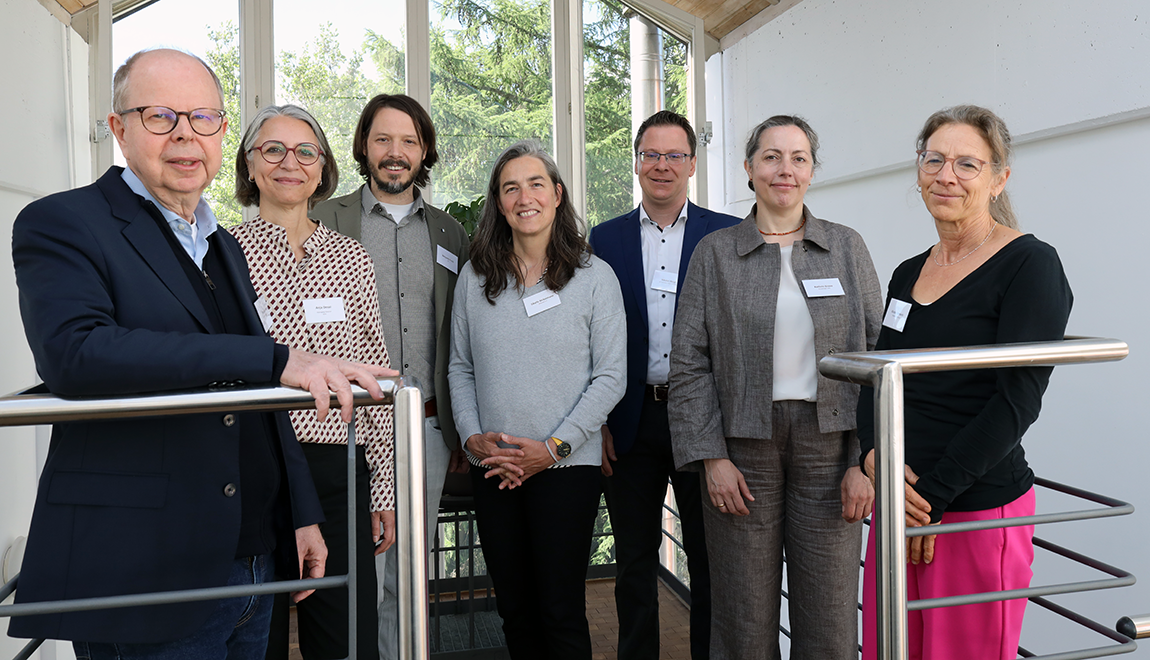SUSTAINABILITY EVALUATION CRITERIA DISCUSSED AT SPRING CONFERENCE IN HAMBURG
The spring conference of the working group on Development Policy and Humanitarian Aid (AK-Epol-HuHi) was dedicated to the challenges when evaluating connectedness and sustainability in this sector. The working group is part of the Evaluation Society DeGEval, with more than 700 members, including institutions such as BMZ, the German Federal Foreign Ministry (AA), KfW, GIZ, Consulting Companies, NGOs and foundations, but also many independent evaluation experts.
The two-day conference took place on May 15 and 16 in Hamburg this year and was co-organised by the GFA Consulting Group. Experts from OECD-DAC, ALNAP, DEval, AA, the Independent Evaluation Group of the Worldbank, KfW, GFA Consulting Group, GIZ, FAKT, Welthungerhilfe, Care, DeGEval and individual experts discussed during two days in various conference formats.
Around 60 participants were welcomed by GFA’s managing director Anja Desai and Kirsten Vorwerk, Team leader at DEval and member of the speakers’ team of the working group. Anja Desai recalled that the consulting firm last hosted the working group's conference in 2016, when the theme was ‘Evaluation in fragile contexts and that sustainability is still a key issue in fragile contexts.
The conference started with a key note session in which representatives from OECD-DAC, ALNAP, the “Active Learning Network for Accountability and Performance in humanitarian action”, DEval and the AA presented key issues of sustainability and connectedness from a development, humanitarian and foreign policy point of view. The HDP nexus is an important unifying concept for these three policy areas - nevertheless, overlaps and demarcations in terms of sustainability and connectedness became clear in the respective presentations.
The key note was followed by a World Café approach, whereby participants discussed how best the criterion of sustainability can be evaluated in ongoing and final evaluations, how evaluations can address the three key dimensions of sustainability, e.g. ecological, economic and social sustainability, and in which way sustainability can already be considered in monitoring.
Three interesting evaluation examples where then presented by the Independent Evaluation Group of the World Bank with a focus on policy sustainability. The presentation comprised evaluations on gender equality, Somalia’s country assessment and third-party implementation.
The first conference day ended with an exciting presentation on foresight methodologies by a representative from DEval, providing ideas how the criterion can be better captured when using these methodologies.
The second day of the conference was filled with presentations, so called ‘Werkstattgespräche’ (group discussions) and a fishbowl discussion about budget cuts in the sector. Tilman Welte from GFA Consulting Group started with a presentation, regarding the implications for sustainability and connectedness, based on the experience out of two joint inter-ministerial evaluations regarding the engagement of Germany in Iraq and Afghanistan.
The main topics of the ‘Werkstattgespräche’ centered around evaluation and monitoring in fragile contexts, whereby GFA and KfW presented corresponding examples, sustainability in final and formative evaluations with presentations from GIZ and FAKT, and the multi-dimensional aspect of sustainability, including presentations from DeGEval and the Welthungerhilfe of Germany.
Brief key notes as part of the fishbowl discussion were provided by Benjamin Frech from GIZ, Anja Desai from GFA, Petra Kiel from the Christoffel Blinden Mission (CBM) and Stefan Ewers from CARE. It became evident that the impact of present budget cuts varies considerably and that the non-governmental sector is the most affected with a very strong effect on vulnerable groups worldwide.
The conference made it clear that evaluating sustainability is still a challenge, despite clear definitions and guidelines. In particular, the various intervention logics of development cooperation, humanitarian aid and foreign policy need to be understood and operationalised in evaluations, combined with state-of-the-art evaluation methods, including approaches for remote sensing.








